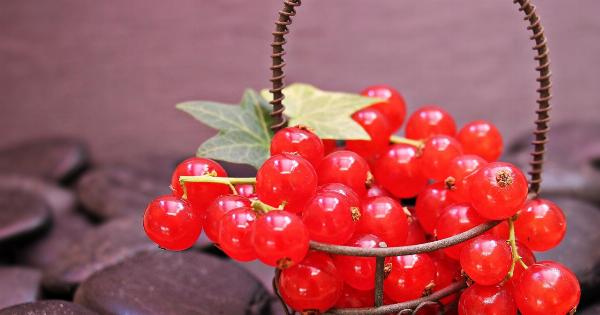Dealing with kidney stones can be extremely uncomfortable and painful. For individuals suffering from this condition, it is crucial to be mindful of their diet, as certain foods can contribute to the formation of kidney stones or worsen the symptoms.
While everyone’s needs and tolerances may vary, there are several forbidden foods that kidney stone sufferers should generally avoid. By eliminating or minimizing the consumption of these foods, individuals can reduce their risk of developing kidney stones and alleviate their symptoms.
The Role of Diet in Kidney Stones
Before diving into the forbidden foods, it is essential to understand the role of diet in kidney stone formation.
Kidney stones are crystallized minerals and salts that accumulate in the kidneys and can cause excruciating pain when passing through the urinary tract. Certain substances found in food can contribute to the formation of these stones.
One of the primary factors that determine the type of kidney stones an individual may develop is the concentration of specific minerals and salts in their urine.
For example, calcium oxalate stones, the most common type, form when there is an excess of calcium and oxalate in the urine. Other types of kidney stones include uric acid stones, cystine stones, and struvite stones. Each of these types has specific dietary triggers.
Forbidden Foods to Avoid
1. Oxalate-Rich Foods: Foods high in oxalates should generally be avoided by kidney stone sufferers. Oxalate binds with calcium in the urine, increasing the risk of calcium oxalate stone formation.
Examples of oxalate-rich foods include spinach, rhubarb, beets, beet greens, Swiss chard, chocolate, tea, and soy products.
2. Sodium and Processed Foods: Excessive sodium intake can increase calcium levels in the urine, leading to stone formation.
Processed foods, such as fast food, frozen meals, and pre-packaged snacks, are often high in sodium and should be limited or avoided.
3. Animal Protein: High intake of animal protein, especially red meat, can increase the risk of uric acid and calcium stone formation.
Individuals prone to kidney stones should limit their consumption of beef, lamb, pork, and processed meats.
4. Calcium-Rich Foods: While it may seem counterintuitive, reducing calcium intake is not recommended for kidney stone sufferers.
However, it is advisable to avoid excessive intake of calcium-rich foods, especially if consumed at the same time as oxalate-rich foods.
5. Sugar and Sweetened Beverages: High sugar intake can lead to obesity, diabetes, and metabolic disorders, which in turn increase the risk of kidney stones.
Sweetened beverages, such as soda, energy drinks, and fruit juices, should be avoided.
6. High Oxalate Fruits: Some fruits are known to contain a significant amount of oxalates. These include berries, such as raspberries, blackberries, and strawberries, as well as kiwi, figs, and grapes.
While fruits are generally considered healthy, those prone to kidney stones should consume these fruits in moderation.
7. Cola and Soft Drinks: Cola and other dark-colored soft drinks contain phosphoric acid, which can promote stone formation by reducing levels of citrate in the urine.
Citrate helps prevent crystal formation and aggregation, making it crucial for individuals with kidney stones to maintain adequate levels.
8. Salt and Canned Foods: Excessive salt intake increases urine calcium levels and raises the risk of stone formation. Canned foods, such as soups and vegetables, often have high sodium content and should be limited or avoided.
9. Oily and Fried Foods: Foods high in unhealthy fats, such as deep-fried items, can contribute to obesity and conditions that increase the risk of kidney stones.
Individuals with kidney stones should opt for healthier cooking methods, such as baking, steaming, or grilling.
10. Alcohol: Alcohol can dehydrate the body and reduce urine production, resulting in a higher concentration of stone-forming substances in the kidneys. It is best to limit alcohol consumption or avoid it altogether.
Conclusion
When it comes to kidney stone prevention and management, diet plays a crucial role.
By avoiding or minimizing the consumption of forbidden foods mentioned above, individuals can reduce their risk of kidney stone formation and alleviate the associated symptoms. However, it is always recommended to consult with a healthcare professional or registered dietitian to personalize the diet according to individual needs and medical history.































